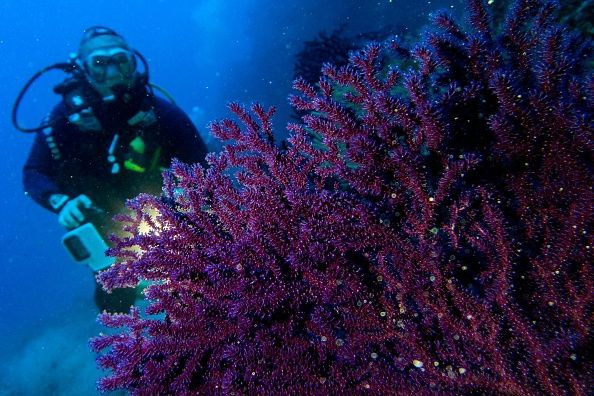Scientists Discover Portal To World Similar To Upside Down On ‘Stranger Things’

Scientists may have found an upside-down world similar to the one featured on Netflix’s “Stranger Things.”
A team of researchers from Schmidt Ocean Institute used their research vessel Falkor together with their remotely piloted robotic explorer ROV SuBastian to explore the depths of the Gulf of California. They went through approximately 2,000 meters or 1.2 miles of the area to gather data on microbial communities and metabolism of those in the deep underwater surface. The researchers hoped to understand how microbes thrive in environments with cold seeps and hydrothermal vents.
As they captured videos of the region, they came across new geological formations with "mirror-like flanges." These are areas featuring "fluid from hydrothermal vents collected in topsy-turvy pools." Chief scientist Mandy Joye was reportedly astonished at what looked like a portal to the Upside Down on “Stranger Things.”
According to CNET, it was incredible to find life thriving in an alien and extreme environment of the deep water. Creatures in these areas use nutrient-rich vents and seeps for survival. However, it was the "mirror-like flanges" formed with the help of an underwater volcano that surprised the scientists.
However, as deep and uncharted usually these areas are, they don't seem to be immune from the world's trash. Unfortunately, researchers also found discarded Christmas trees, deflated Mylar balloons and even fishing nets in such remote environments.
"This provided a stark juxtaposition next to the spectacular mineral structures and biodiversity," Joye said in a press release. The team found large venting mineral towers with volcanic flanges with every surface seemingly featuring some life. Joye added that the "living rocks" with their vibrant colors were striking. It shows the diverse biological composition and mineral distributions in this part of the world.
The researchers also found garbage scattered across the soil and rocks. According to the researchers, finding plastic polluting even the deepest parts of the world's oceans should not be surprising. The exploration is part of the "Microbial Mysteries" expedition. There is a video uploaded as part of the series showcasing what the team found. Interestingly, their video also captured a smiling face of Olaf, the snowman in Disney's animated film “Frozen,” deep in the ocean.
© Copyright IBTimes 2024. All rights reserved.





















